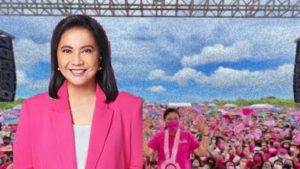It was a vision of shaping Philippine foreign policy, reforming the Department of Foreign Affairs and taking in the United Nations that inspired the creation of the Diplomacy and International Relations program. A collaboration of the minds of the Department of Political Science and the European Studies Program, the curriculum was designed to align this vision to an ideal graduate who is conversant with regional problems, certified with knowledge of foreign language and multicultural in mindset.
In its fruition in 2012 , the program became a vehicle for realizing an imagination based on the training of the future leaders who would take in the reins of the diplomatic arena. Eight years into its full implementation to two (2) graduating classes, the AB Dip-IR program has adopted an enhanced curriculum with courses in Anthropology of Southeast Asia, International Political Economy, Issues and Problems in Diplomatic and Consular Practice and the State and Economic Development in East and Southeast Asia. Thus far, the Dip IR program remains the only one of two undergraduate programs in the Loyola Schools of ADMU, that provides for 12 units of foreign language learning.
Soaring heights with this aspiration, Lia Alejo, Dip IR graduate of class 2018 was handpicked to intern in the Permanent Observer Mission of the Holy See to the United Nations in New York City in the Spring term of 2019. Read on.
Words From Lia Alejo
I grew up with a deep affinity with the international landscape. This was due to my early exposure to and experience with international cultural exchange programs which was the primary reason as to why I decided to pursue an undergraduate degree in International Relations, with an eye for future opportunities in the United Nations (UN) or in the Association of Southeast Asian Nations (ASEAN).
I learned that Ateneo was offering a relatively new degree, Diplomacy and International Relations, under the Political Science Department. This immediately piqued my interest and this, together with the fact that the Ateneo is known for its integrated approach towards education, ultimately made me choose the program. My view of Diplomacy upon entering Ateneo, was that it would aim to connect rather than divide, mend rather than break. I knew that it was a powerful arena with peace and understanding as the ultimate guide and basis, mighty instruments that lie at the heart of every individual human being.
In my four years of being an undergraduate student in the Dip-IR Program, I have learned extensively about the concepts and theories of diplomacy, international relations, politics, and everything under its umbrella. During these years, my initial notion about diplomacy was translated into more concrete and practical ways such as rigorous research papers about local affairs and international disputes, simulations of international panels and negotiations, and exposure to first-hand experiences from able professors. This, together with the valuable lessons from my core subjects, honed my skills into becoming a more well-rounded student looking at the world through a multi-dimensional perspective. Dip-IR strengthened my initial thoughts about diplomacy and allowed me to view things from a much wider perspective.
I graduated in 2018 and I was fortunate to be chosen as one of the interns, for the Spring term of 2019, by the Permanent Observer Mission of the Holy See to the United Nations in New York City. The interns, composed of nine people from various parts of the world, were tasked to represent the Holy See at the United Nations Headquarters in daily forums, meetings, and negotiations. We each were given a chance to select our preferred issues and topics to attend every day. In my case, I chose Environment, Social Development, Migration, and Women topics.
I participated in numerous political forums, high-level debates, commissions, meetings, and negotiations inside the UN and witnessed first-hand diplomacy at work. During my time as an intern, I heard action points of different States on numerous relevant issues, I witnessed important debates regarding human rights and migration, and I participated in negotiations for the adoption of international resolutions. Through all these, I realized that the United Nations, this lofty organization, is also a very human organization where people try hard to work together towards peace and unity. This affirmed what the Ateneo has taught me during my DipIR days—that as much as we are in a vast world today, diplomacy and discourse are platforms, among other platforms, in making the world more reachable and interconnected.
The experience of valuing human understanding and diversity of thought through interdisciplinary channels as dimensions of diplomacy is what I have gained in my overall experience, and what I bring now to my work as a qualitative researcher. I have realized that the essence of diplomacy not only lies within the walls of the United Nations or other international organizations, but exists within each one of us whose goal is to be instruments of peace, understanding, and compassion in any little way we can.



